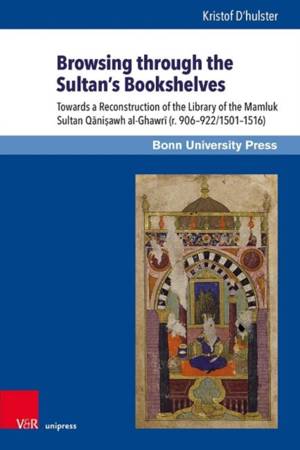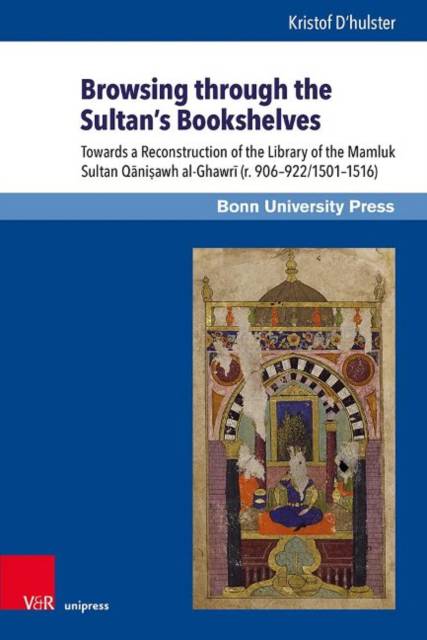
Bedankt voor het vertrouwen het afgelopen jaar! Om jou te bedanken bieden we GRATIS verzending (in België) aan op alles gedurende de hele maand januari.
- Afhalen na 1 uur in een winkel met voorraad
- In januari gratis thuislevering in België
- Ruim aanbod met 7 miljoen producten
Bedankt voor het vertrouwen het afgelopen jaar! Om jou te bedanken bieden we GRATIS verzending (in België) aan op alles gedurende de hele maand januari.
- Afhalen na 1 uur in een winkel met voorraad
- In januari gratis thuislevering in België
- Ruim aanbod met 7 miljoen producten
Zoeken
Browsing Through the Sultan's Bookshelves
Towards a Reconstruction of the Library of the Mamluk Sultan Qanisawh Al-Ghawri (R. 906-922/1501-1516)
Kristof D'Hulster
€ 81,45
+ 162 punten
Omschrijving
Starting from 135 manuscripts that were once part of the library of the late Mamluk sultan Qanisawh al-Ghawri (r. 1501-1516), this book challenges the dominant narrative of a 'post-court era', in which courts were increasingly marginalized in the field of adab. Rather than being the literary barren field that much of the Arabic and Arabic-centred sources, produced extra muros, would have us believe, it re-cognizes Qanisawh's court as a rich and vibrant literary site and a cosmopolitan hub in a burgeoning Turkic literary ecumene. It also re-centres the ruler himself within this court. No longer the passive object of panegyric or the source of patronage alone, Qanisawh has an authorial voice in his own right, one that is idiosyncratic yet in conversation with other voices. As such, while this book is first and foremost a book about books, it is one that consciously aspires to be more than that: a book about a library, and, ultimately, a book about the man behind the library, Qanisawh al-Ghawri.
Specificaties
Betrokkenen
- Auteur(s):
- Uitgeverij:
Inhoud
- Aantal bladzijden:
- 396
- Taal:
- Engels
- Reeks:
- Reeksnummer:
- nr. 26
Eigenschappen
- Productcode (EAN):
- 9783847112921
- Verschijningsdatum:
- 12/07/2021
- Uitvoering:
- Hardcover
- Formaat:
- Genaaid
- Afmetingen:
- 158 mm x 232 mm
- Gewicht:
- 612 g

Alleen bij Standaard Boekhandel
+ 162 punten op je klantenkaart van Standaard Boekhandel
Beoordelingen
We publiceren alleen reviews die voldoen aan de voorwaarden voor reviews. Bekijk onze voorwaarden voor reviews.









